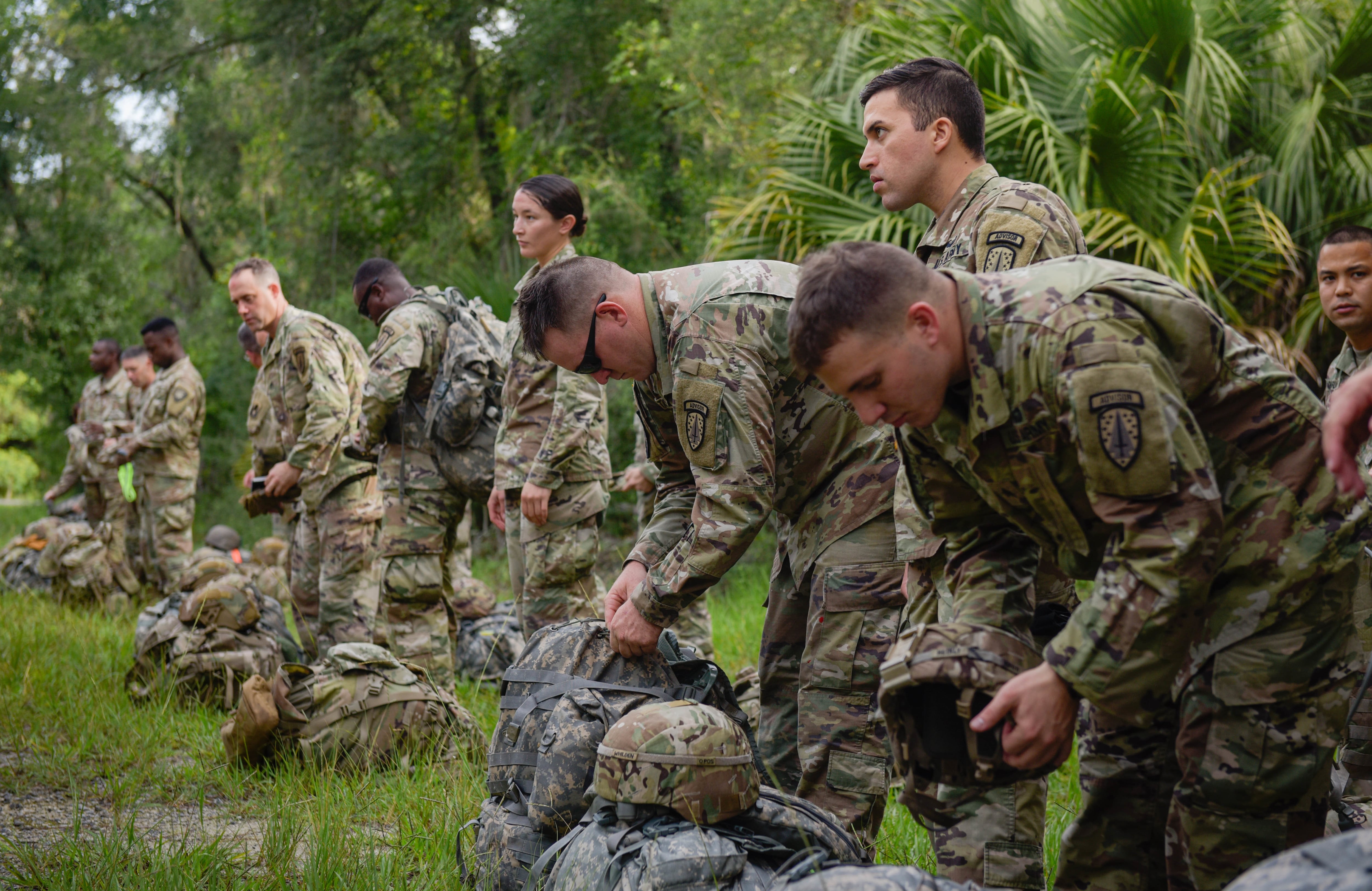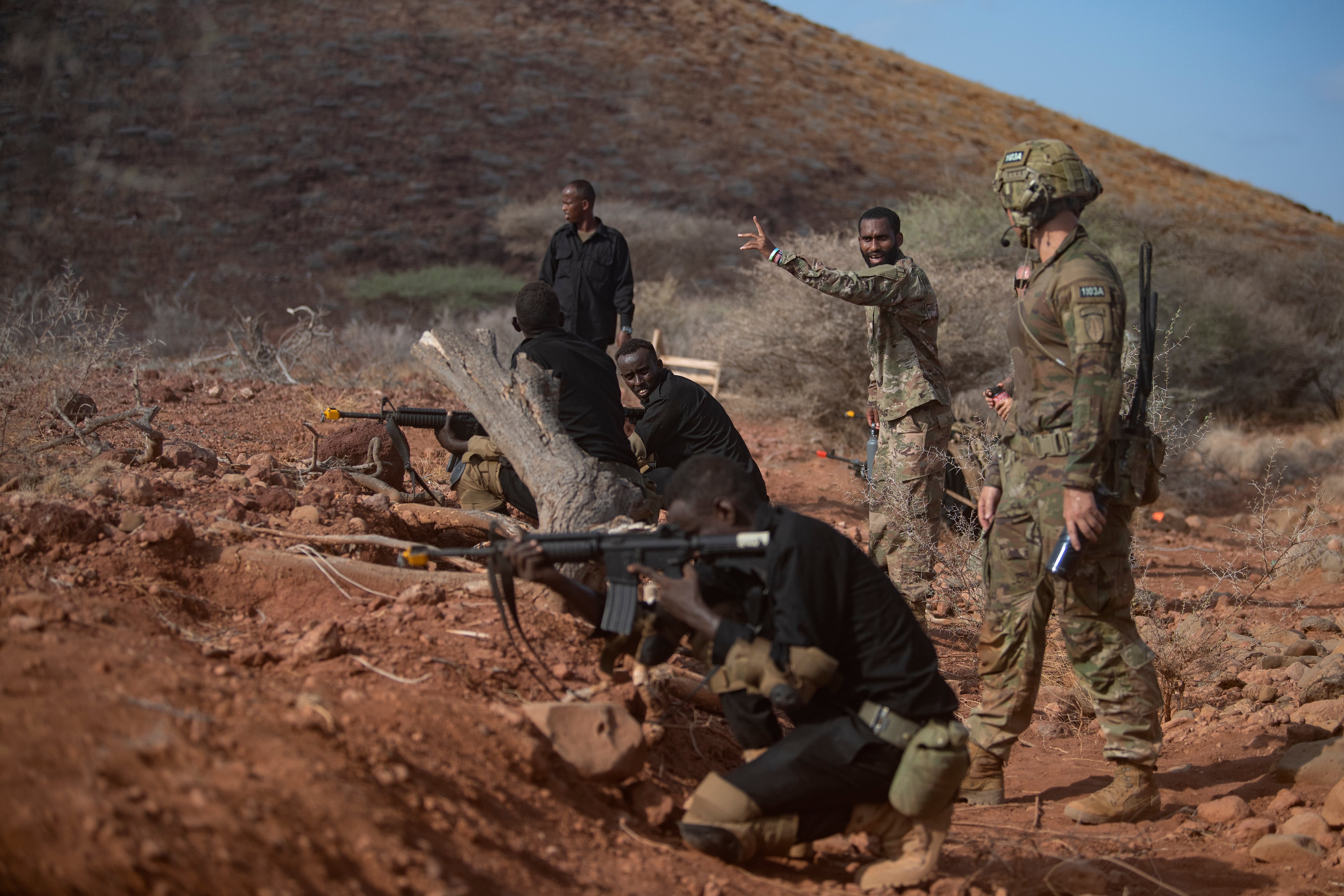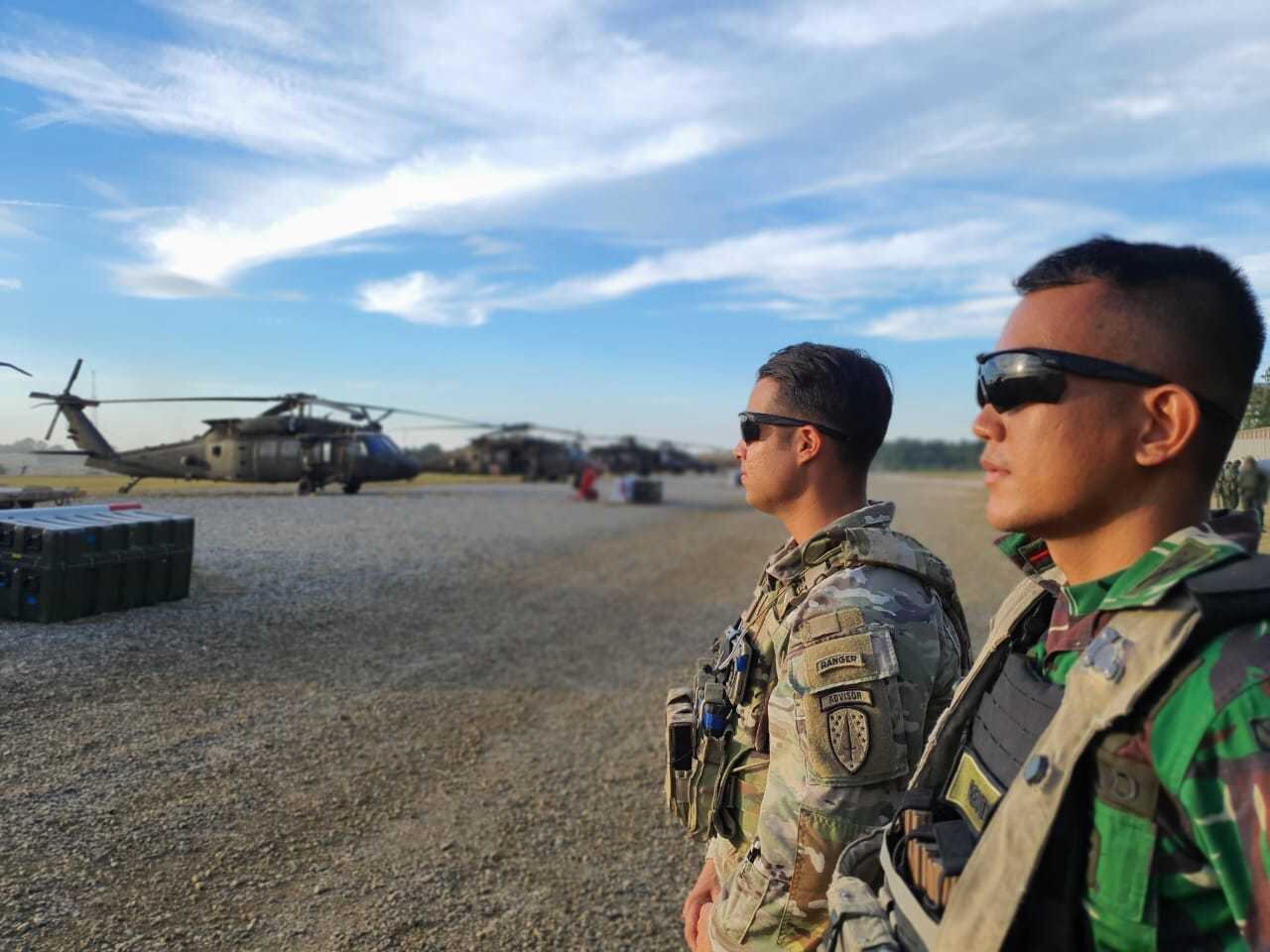Security force assistance brigades don’t view the race for military partnerships in Asia as a zero-sum game, SFAB leaders said during a telephone call with reporters Tuesday.
The 5th SFAB out of Joint Base Lewis-McChord, Washington, is now dedicated to the U.S. Indo-Pacific Command region, and the unit has already started working with Thai and Indonesian troops from there.
SFAB advisers are training foreign militaries as part of a Pentagon strategy aimed at courting regional partners. But in Asia, they also expect to be sharing some of those partners with Chinese military trainers.
“It’s clear that we are in competition with China in every country that we’re going to,” 5th SFAB commander Brig. Gen. Curtis Taylor said during the call, part of the Association of the United States Army conference.
“There is a concerted effort to build mil-to-mil relationships between many of the partners we work with and the PLA [People’s Liberation Army of China]," Taylor added. “We acknowledge that it’s a natural part of operating in that region.”
Taylor’s SFAB, which sent 60 soldiers to Thailand in August after activating in May, wants to show countries in Asia that they’re “a valid partner of choice in a dangerous world," he said.
“That does not mean we’re demanding that everyone we work with make a choice of us over other neighbors,” Taylor added. “We recognize that our partners out there, they’re not going to change their neighborhood, and so they have to work with a number of different partners."
Advising goes beyond tactical skills and can include areas like intelligence sharing and logistics. SFABs can also teach foreign forces how to better develop their noncommissioned officers.
RELATED

“When we show what a staff sergeant or a sergeant 1st class does in the U.S. Army, frankly, a lot of our partners are blown away,” Taylor said. “The Indonesians were absolutely astounded by the level of responsibility we give to a young sergeant first class and staff sergeant. … That’s a real competitive advantage between us and the PLA.”
The 5th SFAB is one of six such units stood up by the Army to train foreign militaries across the globe.
The six SFABs plan to maintain a “sustained presence” in each of the geographic combatant commands rather than the “episodic nature” of past advising missions, said Brig. Gen. Scott Jackson, commander of the entire SFAB enterprise.
“Unlike in Afghanistan, where we kind of surged an entire brigade for nine months … our future model will allow each one of the brigades … to push forward an allocation of the brigade and continually refresh that formation," Jackson said.
Asia isn’t the only place the SFABs are now active. A company-sized adviser team was sent to Colombia this summer to assist with intelligence capabilities and information sharing. Another team is expected to go to Honduras in the next couple months.
Africa has also been the site of recent adviser missions, including 12-man teams operating out of Somalia and Djibouti, according to the 1st SFAB commander, Col. Thomas Hough.

“And then we’ve also had one of our battalion-level teams with about 40 soldiers that’s been working in Tunisia,” said Hough.
Contrary to what some first expected, the point of SFABs in Africa is not to replace the special operations forces that have carved out a niche there, advising local units through counter-terrorism efforts like the 127 Echo program.
Hough framed the SFAB advisers' work in Africa as “complementary” to what special operators are doing.
“We focus on our host nation conventional forces,” Hough said. “And we complement SOF with what they’re doing throughout those regions, as well.”
Though the 1st SFAB has taken on African missions over the past few months, the brigade is in the process of handing responsibility for the continent off to another adviser brigade.
The Army SFAB alignment model will see 1st SFAB out of Fort Benning, Georgia, focused on Central and South America; the 2nd SFAB out of Fort Bragg, North Carolina, focused on Africa; the 3rd SFAB out of Fort Hood, Texas, focused on the Middle East; the 4th SFAB out of Fort Carson, Colorado, focused on Europe; and 5th SFAB focused on Asia.
A sixth National Guard SFAB will reinforce the other five brigades, according to the SFAB leaders.
Kyle Rempfer was an editor and reporter who has covered combat operations, criminal cases, foreign military assistance and training accidents. Before entering journalism, Kyle served in U.S. Air Force Special Tactics and deployed in 2014 to Paktika Province, Afghanistan, and Baghdad, Iraq.





